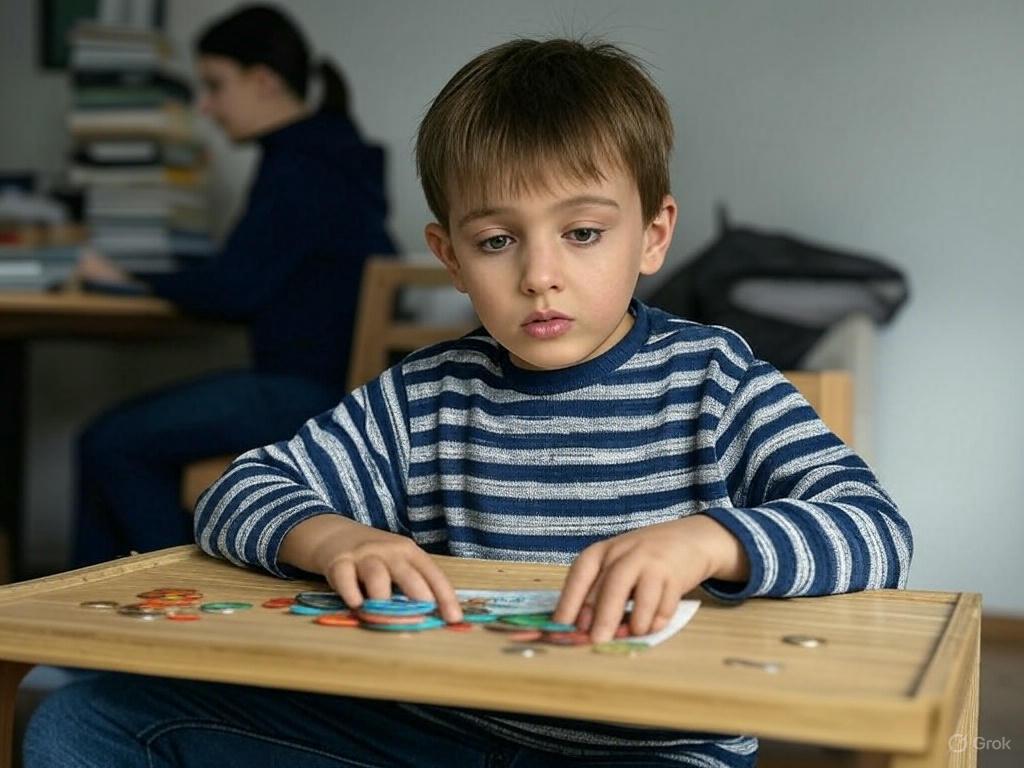
Raising a future entrepreneur is exciting, inspiring and a little overwhelming. Among the many life skills you will pass on, one stands above nearly all others. Teaching children how money works. Kids who learn to budget, save, spend wisely and plan ahead have a head start in life and in business. Financial literacy for kids builds confidence, responsibility and a mindset for success long before they launch a lemonade stand or dream up their first business venture.
Money skills do not magically appear when adulthood arrives. They are learned, practised and strengthened over time. Parents and educators play a massive role. With the right guidance, kids can grow into young adults who make informed financial choices, understand risks and recognise opportunities. This guide explores the meaning of financial literacy, why it matters for young minds and how to teach it in simple and enjoyable ways.
What Is Financial Literacy
Financial literacy is the ability to understand and manage money in everyday life. For children, this means learning basic financial behaviours such as making smart spending choices, saving for goals, avoiding waste, understanding the value of work and recognising the difference between needs and wants. As kids grow older, these skills expand to include earning, budgeting, planning, understanding interest, making informed purchases and eventually learning about investing and credit.
In simple terms, financial literacy helps children learn how money works and how to use it wisely rather than letting it control them. It is a life skill as important as reading and writing.
Why Money Skills Matter For Children
Kids who learn about money early are more likely to handle it responsibly later in life. They build confidence, reduce money anxiety, develop problem solving skills and learn to turn ideas into action. Teaching kids about money also encourages patience and goal setting. When children save for something meaningful instead of wanting everything instantly, they gain emotional resilience and a sense of achievement.
As these habits grow, they create future adults who understand how to balance spending and saving, avoid unnecessary debt and feel comfortable making financial decisions.
Teaching Financial Concepts At Different Ages
Every child learns at their own pace, and teaching money skills works best when matched to developmental stages.
Early childhood
Start with the basics. Counting coins, recognising notes, understanding that items cost money, learning that money comes from work and practising simple saving habits like putting coins in a piggy bank.
Primary school
Introduce bigger concepts such as setting savings goals, deciding between spending and saving, distinguishing between needs and wants, understanding basic earning opportunities and learning how to share or donate.
High school
Add budgeting, part time earnings, tracking spending, bank accounts, digital money, basic investing ideas, compound interest concepts and long term planning. This is also a good time to talk about avoiding debt traps and being wise with online purchases.
Learning grows just like a child grows. Step by step, skill by skill.
Making Money Lessons Fun And Memorable
Children learn best when they are engaged. Storytelling, games, real life examples and hands on activities make financial learning enjoyable.
Try pocket money systems, pretend shop play, family saving challenges, goal charts and rewards for responsible financial behaviours. Let kids help plan small shopping trips so they learn price comparison and budget thinking. Encourage discussions at the dinner table about saving for future plans or interesting business ideas.
Creativity turns money lessons from a chore into a life lesson they proudly carry forward.
Teaching Financial Literacy To Kids With Tips For Parents And Educators
To build strong money habits, consistency is key. Parents and teachers can work together by using simple routines and positive reinforcement.
Help children set achievable financial goals, praise small wins, encourage saving a portion of gifts or earnings, introduce the concept of earning through age appropriate tasks and allow kids to make small money mistakes in a safe environment so they learn from experience.
Explain financial terms in plain language. Use relatable examples, like saving for a toy, a holiday or a school project. Encourage questions and curiosity. When children understand that money gives them choices, not stress, they feel empowered rather than pressured.
Some parents also choose to introduce school workshops, budgeting apps for kids or activity books that blend fun with education. Little steps every week can build outstanding financial confidence over time.
Real World Money Skills For Young Entrepreneurs
Every child who dreams of starting a business needs practical money knowledge. Understanding basic profit, simple record keeping, budgeting for supplies and tracking spending helps them turn creative ideas into real ventures. A mini lemonade stand, handmade craft sale or online service project can become a learning lab for financial skills.
Let kids plan costs, set prices, manage earnings and decide how to reinvest profits. These lessons shape business minds long before adulthood begins.
The Heart Of Practical Financial Learning
Midway through the journey, children benefit from real responsibility. This is where Financial literacy for kids becomes more than lessons and starts shaping habits. Kids who are encouraged to make choices, practise delayed gratification and track savings gain a sense of ownership.
Parents can also model good behaviour. Instead of secrecy around money, share simple conversations. When you budget for groceries, holiday savings or school fees, kids see smart planning in action. Teachers can run classroom saving projects or charity drives that teach purpose driven money thinking.
It is not about perfection. It is about progress, patience and practice. When financial learning becomes part of everyday life, children grow up capable, confident and ready to face the world.
Preparing Teens For Bigger Financial Decisions
Older kids and teens need a deeper look into the financial world they will soon enter. That includes work, digital payments, scams to avoid, banking basics, taxes on income, long term saving plans and the idea that money grows when used wisely.
Discuss creating a simple budget, opening a savings account, understanding bank statements, using digital tools responsibly and setting long term financial goals. Explain why buying everything on credit creates stress later. Show how saving early leads to freedom and choice.
Teenagers respond well to real life stories and clear cause and effect examples. Practical insight helps them become financially responsible adults rather than learning by expensive mistakes.
Building Financial Confidence For Life
Financial knowledge supports emotional wellbeing. Kids who understand money feel more secure, think ahead and exercise independence. They become adults who avoid financial panic and instead build strong futures. Financially literate kids become confident teens and responsible, empowered adults.
Teaching money skills is a gift that pays off for decades.
FAQs
How early should I start teaching my child about money
You can begin during early childhood with simple lessons such as identifying coins and saving small amounts. As they grow, introduce more advanced topics. Small consistent lessons work better than one big talk.
What is the best way to encourage my child to save
Set a clear goal and track progress visually. Celebrate milestones, even small ones. Give opportunities to earn and encourage saving part of what they receive instead of giving everything at once.
How can educators support financial learning at school
Teachers can use games, class projects, mock shops, budgeting exercises and student run initiatives to demonstrate real financial decision making. Group learning builds confidence and teamwork.
How do I help if my child makes poor money choices
Small mistakes are valuable learning opportunities. Talk through what happened without judgement, discuss alternatives and help them plan better next time. Mistakes made young prevent costly ones later.
What role does earning money play in financial education
Earning teaches effort, responsibility and pride. Pocket money systems, chores, student projects and hobby based mini businesses show kids that money comes from contribution, not just request.


